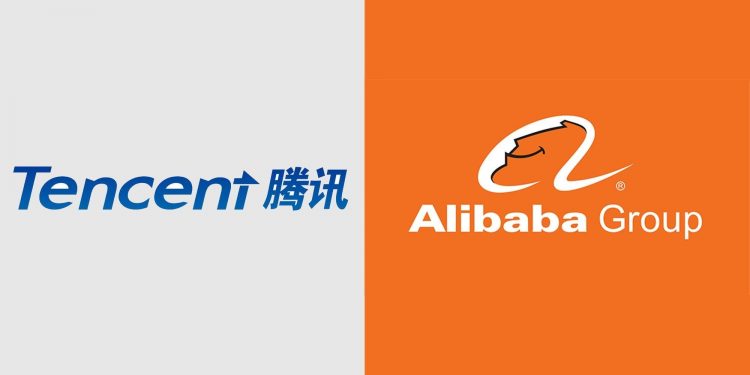China warned its Internet giants on Monday that it would not tolerate monopolistic practices and to brace for increased scrutiny, as it slapped fines and announced probes into deals involving Alibaba Group and Tencent Holdings.
The State Administration of Market Regulation (SAMR) said it would fine Alibaba, Tencent-backed China Literature and Shenzhen Hive Box 500,000 yuan ($76,464) each, the maximum under a 2008 anti-monopoly law, for not reporting past deals properly for anti-trust reviews.
It said it would also look into a merger between game livestreaming firms Huya Inc and DouYu International announced in October. Tencent is a major investor in both and the Chinese tech giant had pushed the deal, Reuters has previously reported.
In addition, the SAMR said it will review and investigate other deals based on tip-offs that some firms had cornered a lot of operating power in certain sectors – a process it expects will be lengthy and involve a large number of companies.
“The fines of the three cases are a signal to society that anti-monopoly supervision in the Internet field will be strengthened,” the SAMR said even as it acknowledged the fines were relatively small.
“The Internet industry is not outside the oversight of anti-monopoly law,” it added in a separate statement.
Hong Kong-listed shares of Alibaba and Tencent fell after the news, with Alibaba closing down 2.6% and Tencent’s shares ending 2.9% lower in their worst day since Nov. 30.
China Literature said it had received SAMR’s notice and would carry out relevant compliance work. Alibaba and Tencent did not immediately respond to requests for comment.
No more ‘wait and see’
This is the first time that Beijing has fined any Internet company for violating the 2008 anti-monopoly law by not properly reporting deals for anti-trust vetting.
The SAMR warned that companies should not adopt a “wait-and-see” attitude before reporting deals, saying some had failed to do so even after reminders.
Beijing issued draft rules last month aimed at preventing monopolistic behaviour by internet firms, marking China’s first serious regulatory move against the sector.
The issue has also become a priority for China’s top leadership. A politburo meeting chaired by President Xi Jinping said last Friday that Beijing would step up its anti-trust efforts.
Alibaba’s financial affiliate Ant Group, founded by billionaire Jack Ma, has been a target of the heightened scrutiny. Its $37 billion listing, scheduled to be the world’s largest, was abruptly halted last month after regulators warned its online lending business faced tighter scrutiny.
‘Ready to take action’
The deals the SAMR fined on Monday include Alibaba’s $692 million investment in Intime in 2014 and the e-commerce giant’s $2.6 billion bid in 2017 to privatise Intime.
China Literature was fined for failing to report its 2018 New Classics Media acquisition. Shenzhen Hive Box, whose backers include logistics giant S.F. Holding Co, was rapped for its acquisition of China Post Smart Logistics.
While the 2008 anti-monopoly law allows the regulator to split up businesses, the SAMR said it had decided against breaking up these three deals as they did not eliminate or restrict competition.
In the decade to Dec. 10, Chinese tech firms have completed 8,702 deals worth $507 billion, Refinitiv data shows.
“The internet sector was left out of anti-trust reviews in the past 12 years, leading to prosperity as well as chaos due to unregulated mergers and expansions,” Liu Xu, a researcher at National Strategy Institute of Tsinghua University, said.
“To start with the simplest, least controversial cases is the quickest way to send a signal that the anti-trust law enforcement bodies are ready to take action,” he added.








